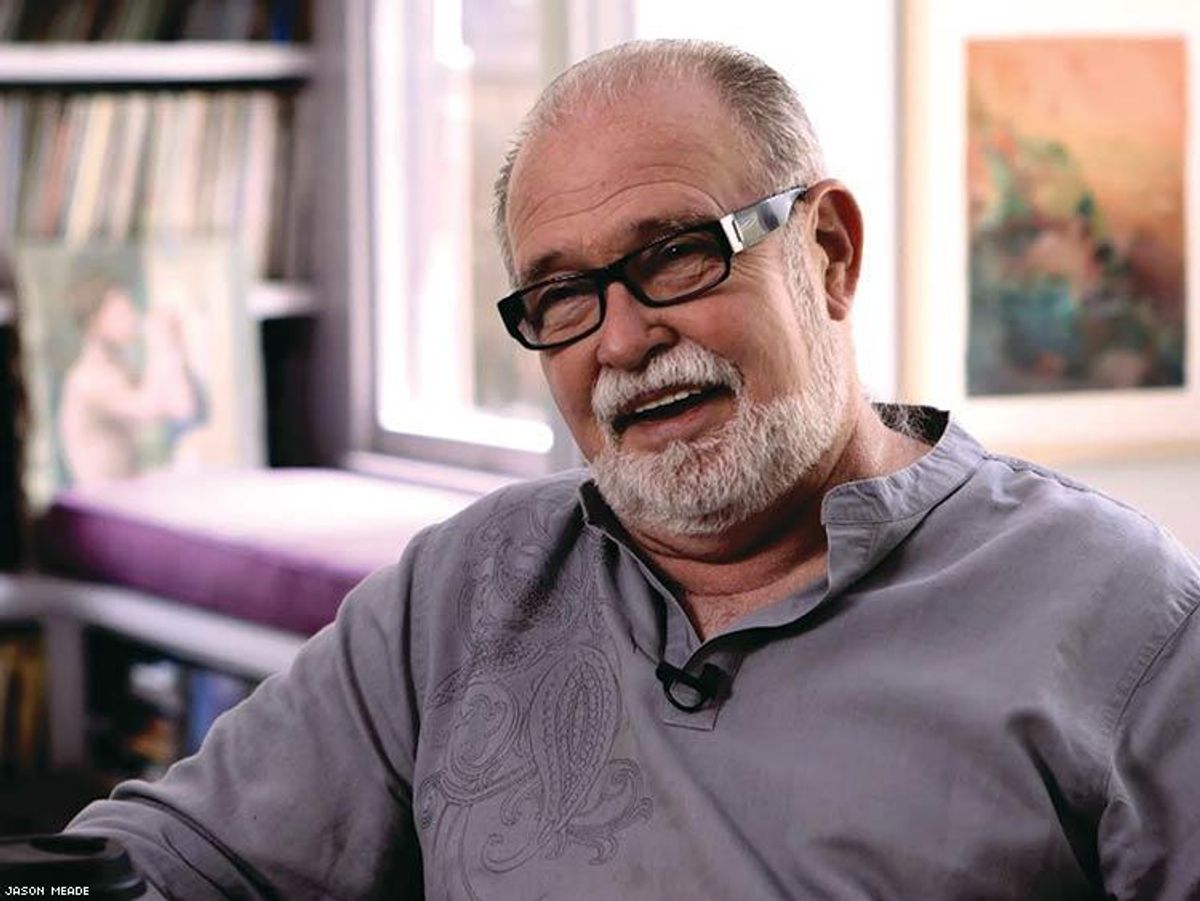After thousands of LGBT people took to the streets to protest the arrival of homophobe Anita Bryant in Houston in 1977, the ensuing march eventually grew into Houston's Pride Parade. By then Ray Hill, now 76, was already a consummate activist, having spent years fighting for civil rights, free speech (he won a Supreme Court case), and prison reform, and aginst the Vietnam War. Hill actually argued against a march in favor of a national convention. A decade earlier, he'd organized a March on Washington with the Student Mobilization Against the Vietnam War, so, he says, he feared a Gay and Lesbian March would "bankrupt all of us."
But as delegates from different states were still bickering over details (was it a march for human rights or gay rights?) when Harvey Milk was assassinated and everything changed. They owned their homosexuality to honor Milk.
While Hill's friend Phyllis Frye -- a trans activist -- tried to get representation in the name of the event, the motion was defeated, as was the effort to add bisexuals. "I do not think they had any articulate reasoning" for not making the name more inclusive, Hill says now. "It was just prejudice. We were an embryonic [community] with all the prejudices that came with us."
Having agreed to organize the march, Hill set about finding seed money, so his prediction about financial ruin didn't come to fruition. He turned to a Texas bar owner, Frank Caven.
"I asked ... for half a million dollars," Hill recalls. "He gave me half that." A savy businessman, Hill jokes that Caven "rushed to Washington, D.C., and opened [a gay bar] J.R.'s, and made all his money back."
When they got to D.C. October 14, 1979, Hill and Frye led the Texas delegation in the march and then Hill co-emceed with Robin Tyler. The two didn't get along.
"We fought most of the day." Hill recalls being exasperated because "she wanted to cut Allen Ginsberg [from the program] because 'no one has ever heard of him.'"
Although impressed by the number of people who came ("No one had seen that many queers in one pile before"), Hill says for him, "Anita's rally [in Texas, actually] had a greater impact on me.'"
Despite their role in organizing the first LGBT March on Washington, Hill says his state's activists -- including Pokey Anderson, Gary Von Ooteghem, Fred Paez, Frye, and Jack Valenski -- don't get the credit they're due.
"The history of the movement is recorded from an East Coast/West Coast competition. The rest of us are just flyover country. But we have kept our own history."
The Houston activist is in the spotlight again, with Travis Johns's new documentary, The Trouble With Ray, which should hit festivals this year. Producer Jarrod Guillette says the film covers Ray's 50 years of activism, the evolution of Houston's LGBT community, and its role in the national movement.
"We feel the time is right to reference the present with the past to see what can be learned," Guillette says. "And no one has more experience hammering forward through the bullshit, divisions, and broken systems" than Ray Hill.


















































































